

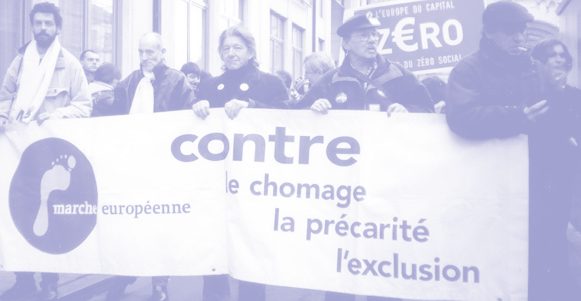 |
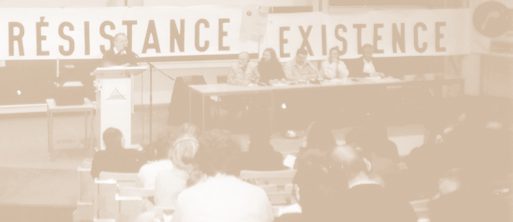 |
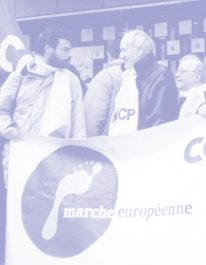 |
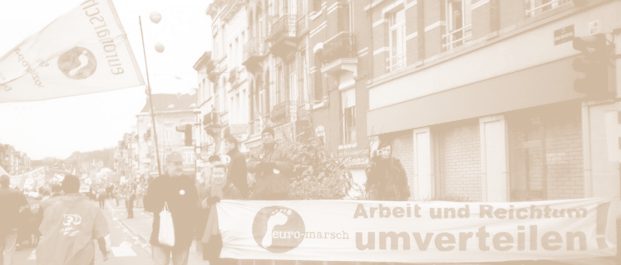 |
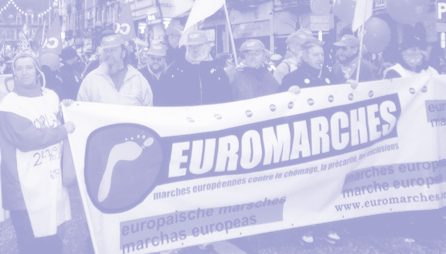 | ||
European Marches
|
||||||||||||||
| ||||||||||||||
What in the future? |
||||||||||||||
Women and precariousness in SpainSummary of Catalina Borrero's intervention (Women group of the CGT-Spain) 
On the occasion of this conference, we have made analyses on the casualization of labour for more and more workers in the enlarged Europe, the growth of poverty and the increase of inequalities. However, we have not talked about a very numerous and insecure group in every country: women. Being a woman and young in Spain is synonymous with precariousness; this specific group are especially the beneficiaries of fixed term contracts (3 days, 3 weeks, 3 months) and part-time daily jobs, not that they would have made a choice, but for that these are the only jobs they could find. They earn between 25% and 30% less than men with the same skills and the same careers. Women's activity rate in Spain is one of the lowest in Europe and unemployment rate one of the highest (15, 9%) twice high as for men. There are especially insecure groups among women as for instance cleaning women who have a specific social security regime leaving them with no rights, widows with derisory allowances, migrant women without papers and prostitutes for whom working conditions approach slavery. In the other hand, Spanish state brings up the rear in Europe as far as social expenditures are concerned; we have for instance very few schools for children from 0 to 3 years old and very few old persons' homes. Men do not take many responsibilities at home and do not look after the age and the infirm. In 80% of cases, women hold this job with a very high cost for their physical and mental health. If we add the privatization of public services, the more and more insecure working conditions and social allowances cuts we are witnessing a generalization of insecure life. That is why the CGT decided to give an impetus to the struggle against precariousness with this aim of making a deep diagnosis of the reality and to give itself tools for a better struggle. We try to stress not only on precariousness in the field of employment but also on some more hidden aspects: precariousness in life, satisfaction of the needs of people. For instance, we all need medical care and to take care of those who need treatment and we have less and less possibilities to satisfy these needs because we have neither time nor means given that firms want us to work 24 hours a day. In this working group, there are people from any sector, specifically the most insecure; in order to pool our specific struggles, the difficulties we have to face, to find the methods and the alternatives most efficient against this blight on society. These alternatives must come from an awareness of people of the causes and consequences of precariousness, from a greater solidarity among workers even if working conditions are different, from the connection of different point of views with the social movement, at both the national scale and European scale. They must also come from the will to change this society which is based on the accumulation of capital instead of the satisfaction of the needs of people. |
Content | |||||||||||||
|
<< Common social rights to every resident in the European Union A European and misogynistic constitutional treaty which usurps women's conquests >> LISBON AGENDA: More and Better Jobs? >> Report of the four working groups >> 
02/08/04
|
||||||||||||||